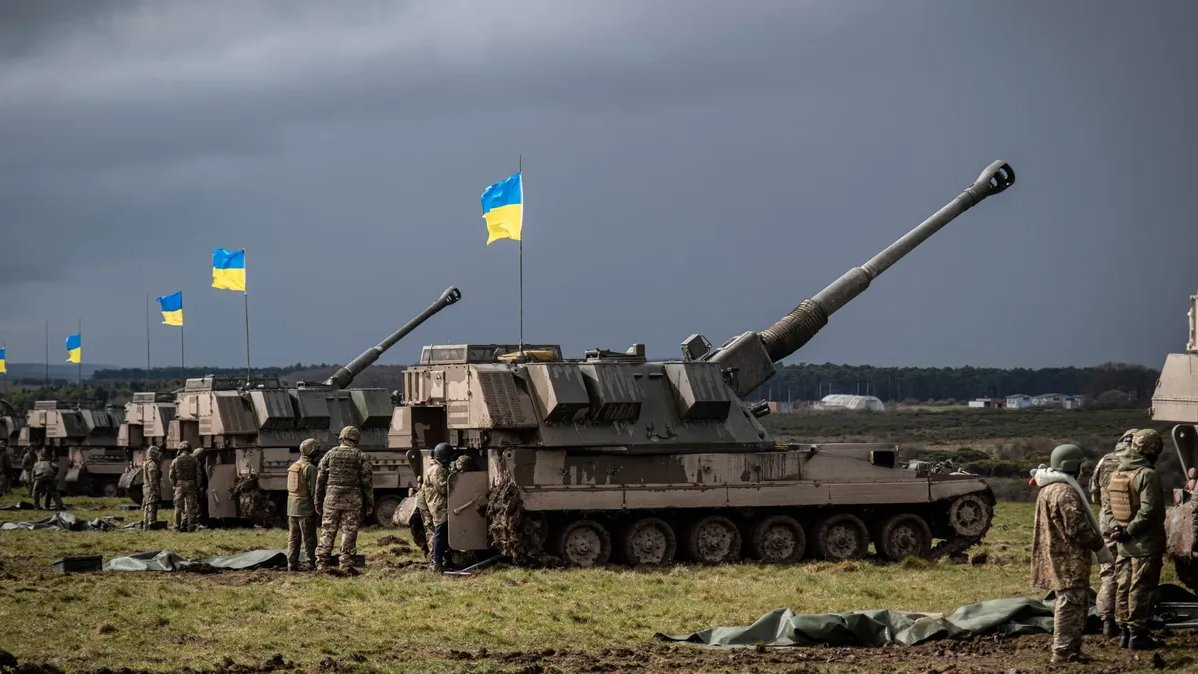The NATO headquarters in Brussels hosted a defence minister meeting of the allies on 15 and 16 June. On Thursday, the officials had two sessions to discuss plans to continue supporting Kyiv: at a meeting of the Ukraine Defence Contact Group and the NATO-Ukraine commission meeting. Ukraine’s Defence Minister Oleksii Reznikov participated in both events. Following the consultations, he said that he was “certainly satisfied” with the guarantees voiced at the meetings.
NATO Secretary General Jens Stoltenberg repeatedly underlined that these talks are conducted amid Ukraine’s largest counter-offensive push. He is confident that Ukraine’s battlefield successes will be able to push the Russian leader to launch peace talks.
A senior NATO official told reporters, including a Novaya Gazeta Europe correspondent, on the condition of anonymity more about the current situation in the Ukraine war.
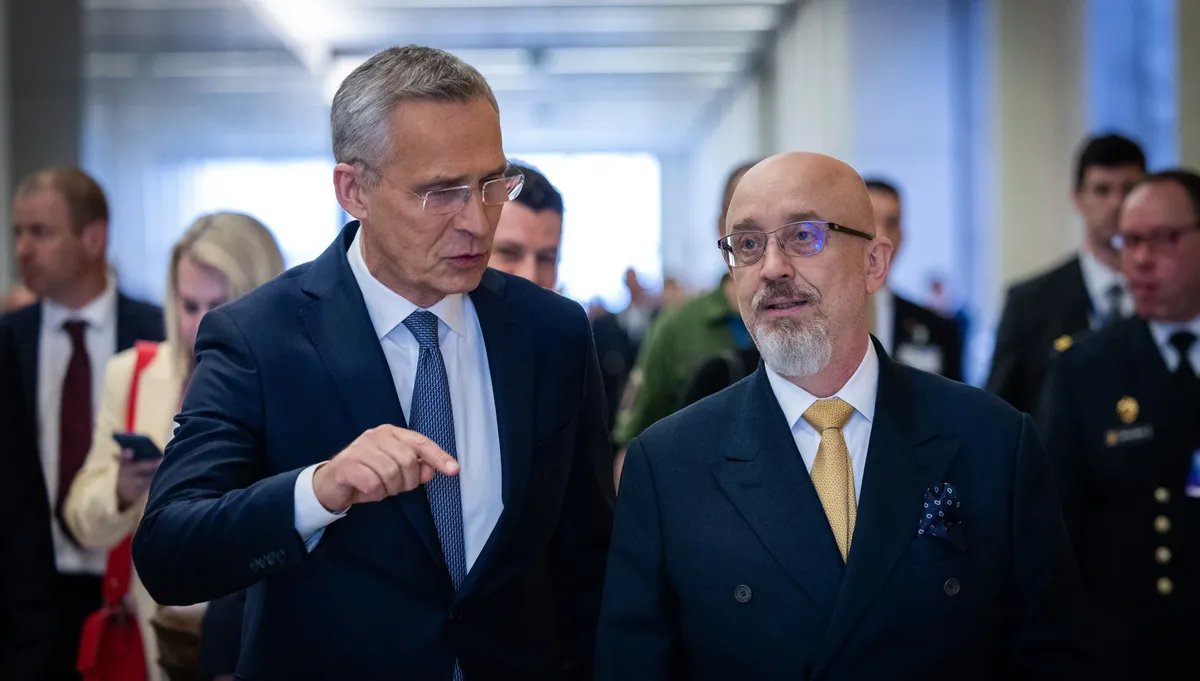
NATO chief Jens Stoltenberg and Ukrainian Defence Minister Oleksii Reznikov at the NATO headquarters in Brussels. Photo: Nato.int
Ukraine’s counter-offensive
According to the NATO official close to the alliance’s leadership, Ukrainian troops are believed to “have likely made progress and penetrated forward Russian defences” in several areas of east and south Ukraine. Meanwhile, the “Ukrainian progress has been slow” in other sectors.
“Russian performance has been mixed.”
“Some units are likely conducting incredible manoeuvre and defence operations, while others have pulled back in some disorder,
amid increased reports of Russian casualties as they withdraw, often through their own minefields. The Russian Air Force has been unusually active over southern Ukraine, where the airspace is more permissive for Russia than in other parts of the country.”
“In most areas, Ukraine holds the initiative. Since the start of May 2023, Russia has increasingly ceded the initiative in the conflict and is reacting to Ukrainian action rather than actively progressing towards its own war aims.”
“Over the course of May 2023, Russia launched airstrikes on 20 nights, mostly comprised of one-way attack drones and cruise missiles. However, these attacks have generally failed to neutralise Ukraine’s improved air defences or to destroy Ukrainian counter-attack forces, both of which likely were their aims.”
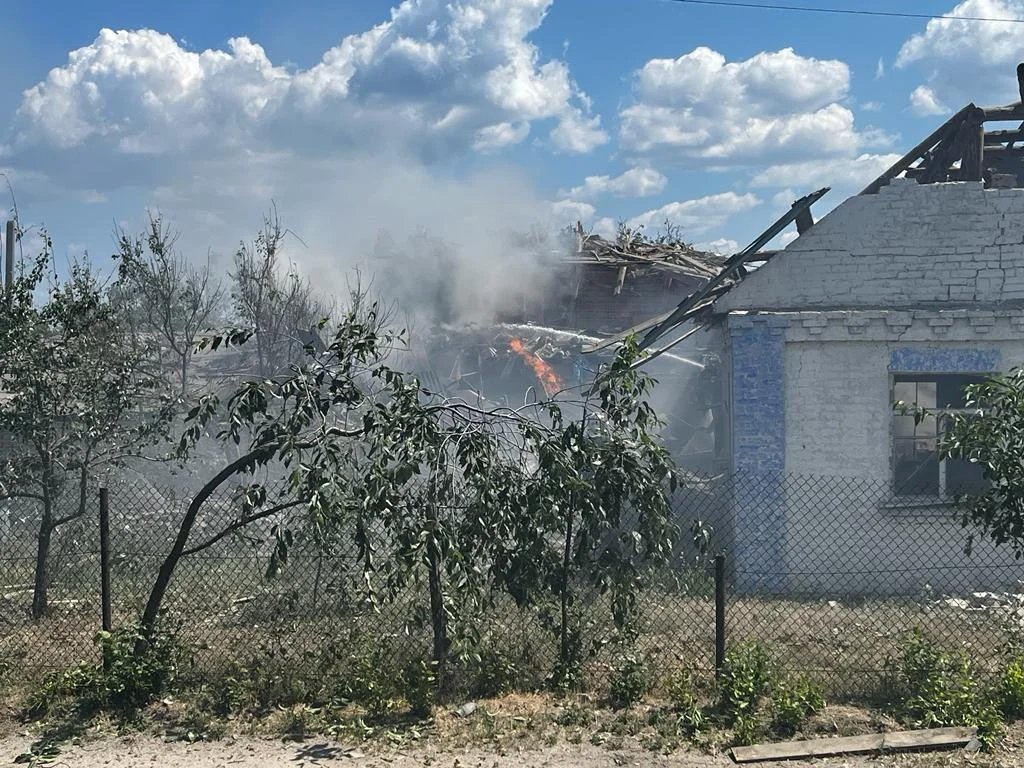
Aftermath of a Russian attack on the Kyiv region, 16 June 2023. Photo: Kyiv regional prosecution
“But the Russian airstrikes do continue across Ukraine, mostly targeting Ukraine’s critical infrastructure, and I anticipate that [they] will likely continue as Moscow believes it’s an effective strategy to weaken Ukraine’s will to fight. So then it’s important that Ukraine is able to maintain effective air defences.”
“Operationally, Russian commanders are likely attempting to generate reserve forces and position them where they believe a Ukrainian counter-attack will occur. However, this objective has probably been undermined because uncommitted forces are instead being sent to fill gaps in the frontline around Bakhmut,
making the whole Russian force less flexible in reacting to operational challenges.”
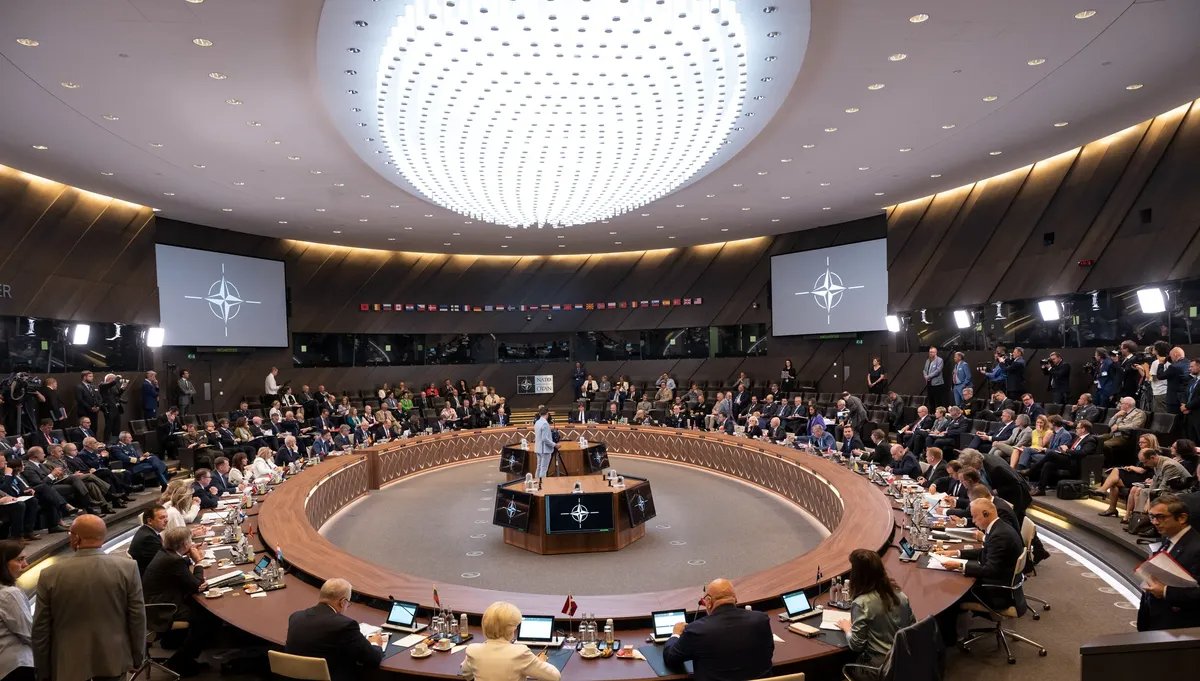
NATO defence minister meeting. Photo: Nato.int
Bakhmut situation
The NATO official underlined that Bakhmut, a town in eastern Ukraine which has been an epicentre of fierce clashes for a long time, is “largely a symbolic political objective for Moscow” but “Ukrainians are also attaching some symbolism to keeping the town”. According to him, even if Bakhmut is fully captured by Russia, it will not yield any strategic influence on the course of the war.
“In general, the situation on the ground still remains very dynamic. Ukrainians have likely established a deep defensive zone just west of Bakhmut and Wagner Group forces have likely withdrawn from many of their positions around Bakhmut,” he says. “Ukrainians are continuing to fight in the vicinity and have taken more than 20 square kilometres of territory on the outskirts of the city.”
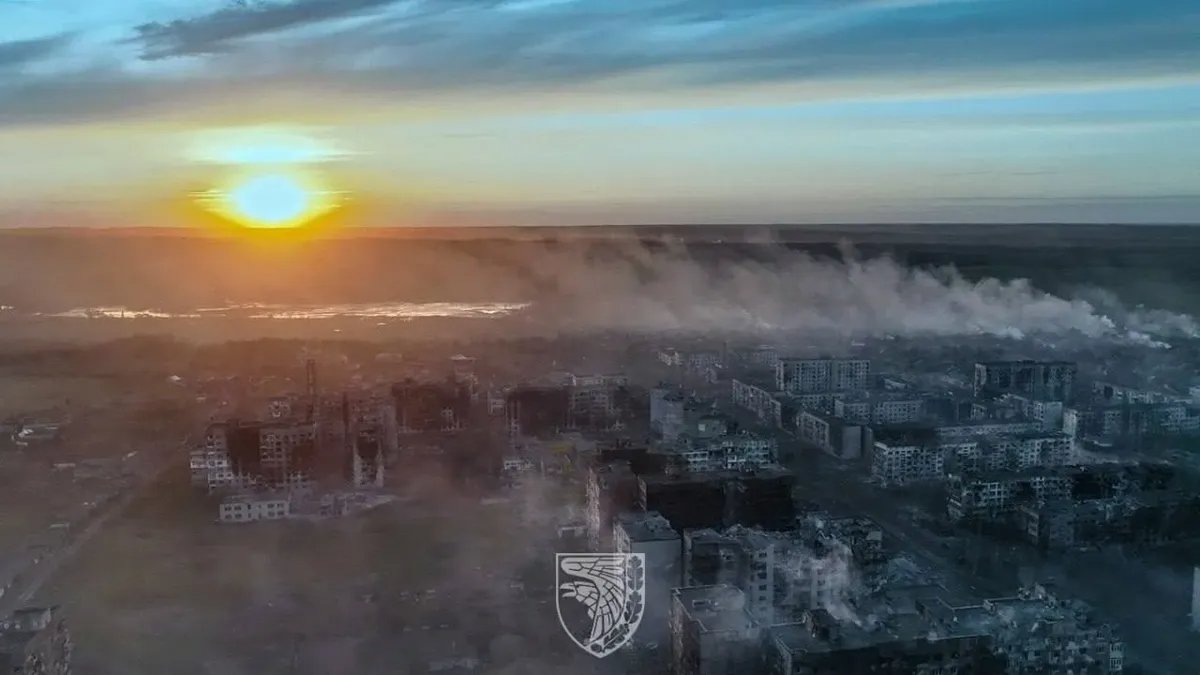
Bakhmut in May 2023. Photo: the Kholodny Yar 93rd separate mechanised brigade of the Ukrainian Armed Forces
“Russia has redeployed regular units and elite airborne forces of VDV [Russian abbreviation for airborne forces] to the sector to prevent any collapse in pockets around the city, which then creates operational stresses for the Russians in other areas. The so-called Donetsk people’s republic forces likely entered the city on the 24th of May to start clearance operations.”
The senior NATO official believes that no strategically important actions were taking place along the frontlines before Ukraine’s counter-offensive began last week. According to him, the main reason lies with the fact that Russia is lacking ammo for its manoeuvring units essential for any major offensives, while Russian commanders give orders to
“undermanned, inexperienced units to achieve unrealistic objectives due to political pressure.”
“So, it’s doubtful that Russian forces can achieve success on the offensive, and they will likely be unable to mount a significant offensive operation at any time this year,” he says.
Kakhovka dam collapse
“No, none at this time,” the NATO official said when asked if the alliance has any intel proving who was behind the attack.
“They’re [Russia] the only party that stands to make substantial gains in the dam’s destruction.”
“But I don’t have enough [intel] to say that it was them.”
He notes that increasingly more reports are coming out in open sources that dams and other facilities in the areas of Ukraine’s counter-offensive, “much smaller than the Kakhovka dam”, are destroyed. Seemingly, it is happening at the same time as the Ukrainian forces are making successful advances down these river valleys towards the location of these dams, he adds.
“But now, is it a pattern? I don’t know. I mean, two points make a line.”
“I hope it is not the beginning of a new path <…>, because again, it’s outrageous and reckless. It’s not just the environmental damage. It’s the impact on real people that live in these areas. And they do suffer when this happens.”
Apart from that, 16,000 people were affected by the flooding that ensued after the dam collapse. The precise number of people who died in the floods is unknown, while Russian forces continue to shell Ukrainian volunteers who help and evacuate people on the Dnipro’s right and left banks, the NATO official stresses.
According to his calculations, reconstructing the dam’s water lift wheel alone will cost more than $500 million, while rebuilding the power plant itself will result in an “astronomical number”.
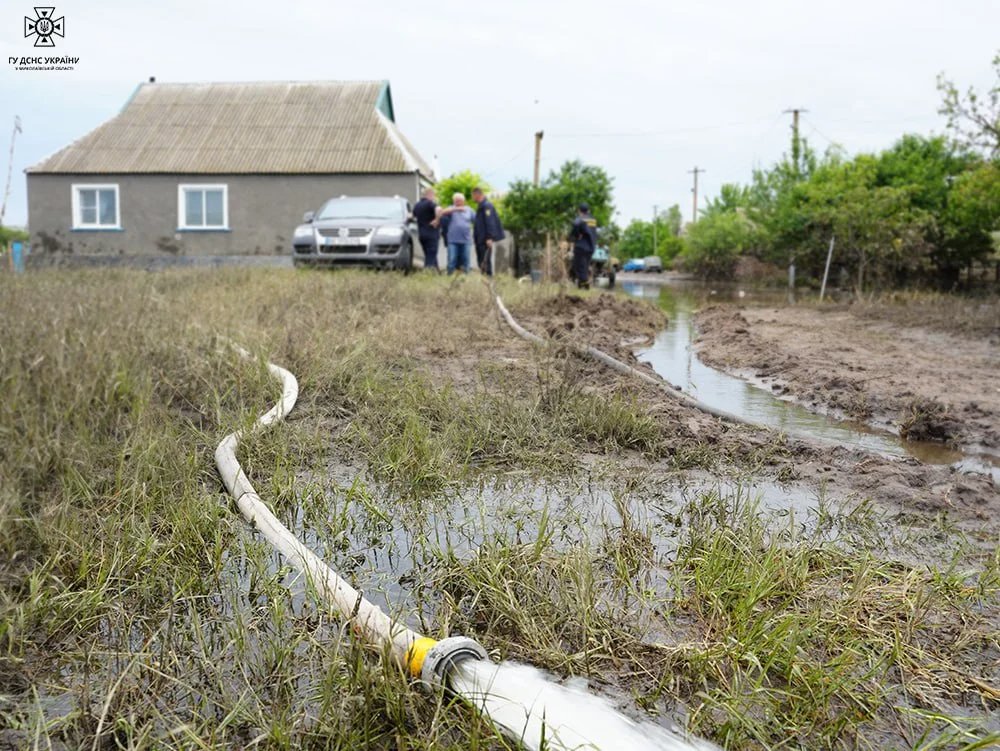
Aftermath of the floods following the Kakhovka dam collapse. Photo: Ukraine’s emergency service
Among other consequences of the dam’s destruction, he named serious environmental damage, interrupted water supply in several large regions of Ukraine, increased sanitary risks, and a growing number of waterborne diseases spreading across the affected areas.
“So [it’s a] very bad situation. And I mean, again, just to add some colour, bodies washing ashore near Odesa that have been moved all the way down the river and spat out have a huge impact on food supply, also a huge fishery reserve as well as the impact there on it on the Northern Black Sea, the delta,” the official notes.
Drone attack on Kremlin and Belgorod shelling
“If you go back to World War II, sabotage, operations behind enemy lines are part and parcel of war efforts.”
“And I think some of this, especially if you take a look at Belgorod, clearly is a sign that not every Russian is, in fact, on board with the so-called special military operation. Not every Russian nor every Belarusian is on board with the direction and strategic intent of Lukashenka and Putin and others in this.”
“We may see more of it. It stands to reason there are also many Ukrainians that live in Russia. Some Russian citizens as well are sympathetic to Ukrainians. So the Russian Ukrainian border is really long. It’s vast and difficult to control. And it would seem that notwithstanding the defences, these big trenches the Russians have built inside their own territory, that attacks can happen inside.”
“I think an attack, whoever did that attack on the Kremlin [the drone attack on the Kremlin on 2 May 2023], I think makes clear that there may actually be no part of Russia that is beyond the reach of the war that they have illegally initiated in Ukraine.”
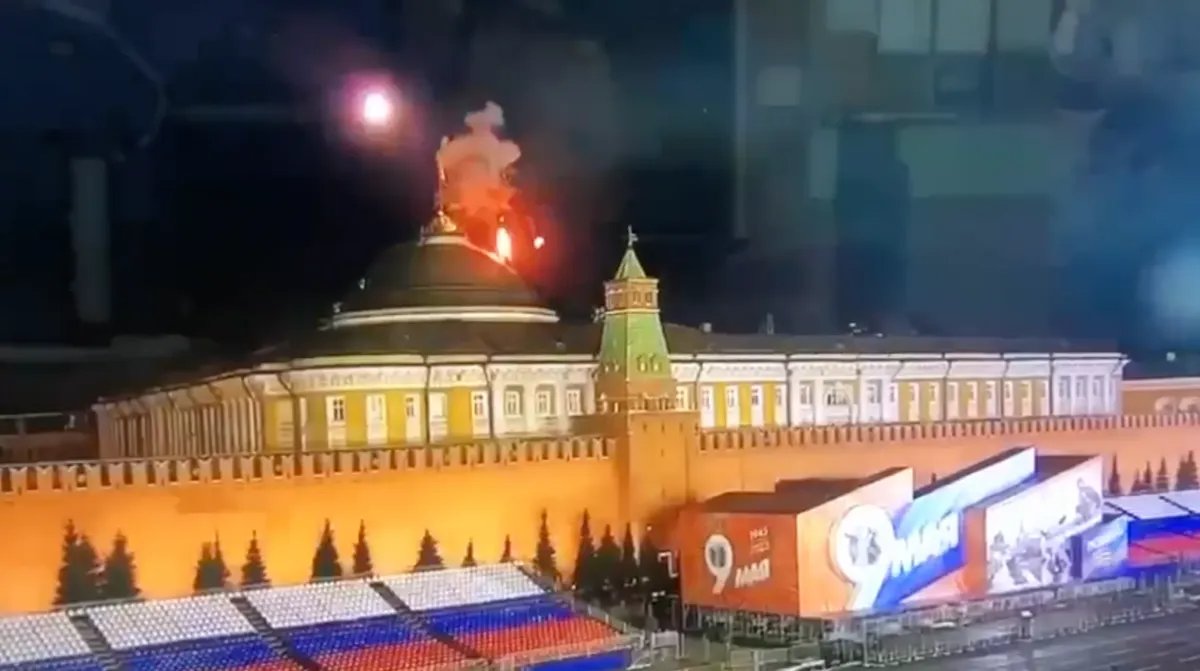
The moment two drones attacked the Kremlin in May 2023. Photo: social media video screenshot
“It is not a war that is going to be solely fought in Ukraine. It is a war that probably will increasingly affect Russians as well.”
“I mean, certainly look at the interviews of people in the Belgorod [region], you know. Right. I mean, you have a whole town [Shebekino] there that went from 40,000 people to about 500 that is essentially in no man’s land from shelling.”
“I think, let’s just say politely. It is unreasonable for Russians to believe that Ukrainians should have no right to attack them while they are attacked within their own country. It’s an element of the self-defence of Ukraine. So I think to a certain extent, these attacks bring home the reality of war and the symbology of an attack in Moscow. An attack like that. Again, I’m not giving attribution. All I’m saying is that it makes it clear.”
“I think that it’s at least a tap on the shoulder. That the war comes home,”
the NATO official concludes.
Join us in rebuilding Novaya Gazeta Europe
The Russian government has banned independent media. We were forced to leave our country in order to keep doing our job, telling our readers about what is going on Russia, Ukraine and Europe.
We will continue fighting against warfare and dictatorship. We believe that freedom of speech is the most efficient antidote against tyranny. Support us financially to help us fight for peace and freedom.
By clicking the Support button, you agree to the processing of your personal data.
To cancel a regular donation, please write to [email protected]
